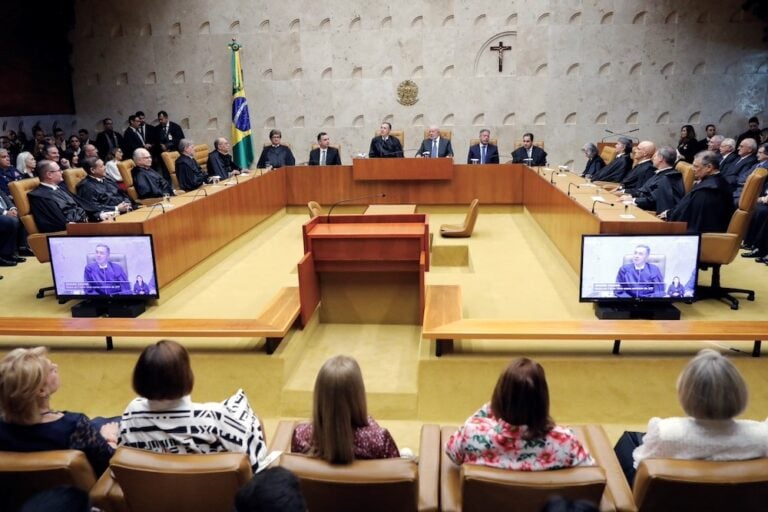(RSF/IFEX) – In a 25 July 2003 letter to President Luis Inacio Lula da Silva, RSF voiced concern over the 23 July murder of freelance photographer Luiz Antônio Costa, and the killings of three other journalists in the past two months. In all four cases, there is reason to suspect that the journalists were killed […]
(RSF/IFEX) – In a 25 July 2003 letter to President Luis Inacio Lula da Silva, RSF voiced concern over the 23 July murder of freelance photographer Luiz Antônio Costa, and the killings of three other journalists in the past two months. In all four cases, there is reason to suspect that the journalists were killed because of their work.
Secretary-General Robert Ménard urged President Da Silva to do everything possible to ensure that thorough investigations are carried out to establish the circumstances of the deaths and bring those responsible to justice. Ménard requested that RSF be kept informed of progress in the investigations.
The RSF secretary-general also asked President Da Silva to reform the judiciary so that investigations into the killings of journalists are entrusted to the federal police, rather than local civilian police forces. “This would shield investigations from local pressure as the civilian police is under the authority of local politicians who sometimes are themselves suspects in these murders,” Ménard said.
The latest victim, Costa, was shot on 23 July as he was preparing a report for the weekly “Época” on land belonging to a Volkswagen plant in São Bernardo do Campo (São Paulo state) that is being occupied by members of a movement of homeless people. He died as he was being rushed to hospital. The gunman was last seen heading towards the encapments of the homeless.
The daily “A Folha de São Paulo” published the testimony of André Porto, a photographer with the newspaper “Agora São Paulo” who witnessed the incident and photographed it. Porto said the gunman tried to steal Costa’s camera and shot him when he resisted. According to “Época”, police had not yet determined whether the gunman was one of the homeless movement’s security guards or just an ordinary criminal. The homeless movement issued a release deploring Costa’s death and stressing that it is “a peaceful group that rejects violence.”
Two suspects were arrested and then released because they were not recognised by witnesses.
On 30 June, Linhares Batista, the owner of Radio Vale do Jaguaribe station in Limoeiro do Norte (in the northeastern state of Ceará), was shot dead by two gunmen as he was recording his programme “Encontro político”. The two gunmen fled immediately afterwards. His programme was well-known for its polemical style and the accusations he would level against political figures and local government officials. Batista’s relatives said he had received a number of death threats.
A police spokesman told RSF that Batista’s murder was definitely a politically-motivated contract killing. However, local journalists said they suspected Batista of collecting payments from politicians in return for broadcasting, or refraining from broadcasting, information.
Edgar Ribeiro Pereira de Oliveira, the owner of “Boca do Povo” weekly in Campo Grande, capital of the southern state of Mato Grosso do Sul, was gunned down on 9 June as he was taking one of the newspaper’s employees to her home.
The weekly is known for its controversial reporting on drug trafficking and murders by hired killers and its criticism of political corruption and business fraud. Nevertheless, some of Pereira de Oliveira’s colleagues questioned his methods and suspected him of blackmail.
Melyssa Martins Correia, the cultural supplement editor of “Oeste Notícias” newspaper, in Presidente Prudente (in São Paulo state), was shot dead at point-blank range on 3 June. It is not known if the killing was a random criminal act or was targeted at the newspaper, which has often reported on the activities of a São Paulo criminal organisation known as Primero Comando da Capital (PCC) (see IFEX alerts of 10 and 5 June 2003).


